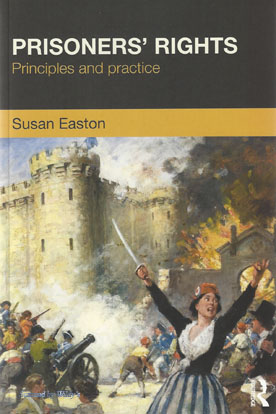
This book considers prisoners' rights from socio-legal and philosophical perspectives and assesses the advantages and problems of a rights-based approach to imprisonment. At a time of record levels of imprisonment and projected future expansion of the prison population, this work is timely.
The question of prisoners' rights has also become more important with the incorporation of the European Convention on Human Rights into UK law by the Human Rights Act 1998. Prisoners' Rights: Principles and Practice will not be confined to a formal legal analysis, although it will include discussion of the developing jurisprudence on prisoners' rights. It offers a socio-legal rather than a purely black letter law approach and focuses on the experience of imprisonment. It will draw on perspectives from a range of disciplines to illuminate how prisoners' rights operate in practice.
The text will also contribute to debates on imprisonment and citizenship, the treatment of women prisoners, and social exclusion. The role of prisoners' rights in raising standards of imprisonment, the impact of international law on prison regimes, prison conditions, access to the outside world and procedural justice in the prison context will be considered. Topical issues such as prisoners' access to artificial insemination, conjugal rights for prisoners and the question of whether prisoners should be given the right to vote will also be covered.
The problems of reconciling penal austerity and the principle of less eligibility with equal treatment and respect for human rights will be explored, as well as the public's attitude towards prisoners' rights. The text will be of interest to students of penology and criminal justice on undergraduate and postgraduate degrees as well as professionals working within the penal system. Although the work focuses primarily on imprisonment in England and Wales, reference will be made, where appropriate, to the experience of other jurisdictions, including the United States and the Netherlands.